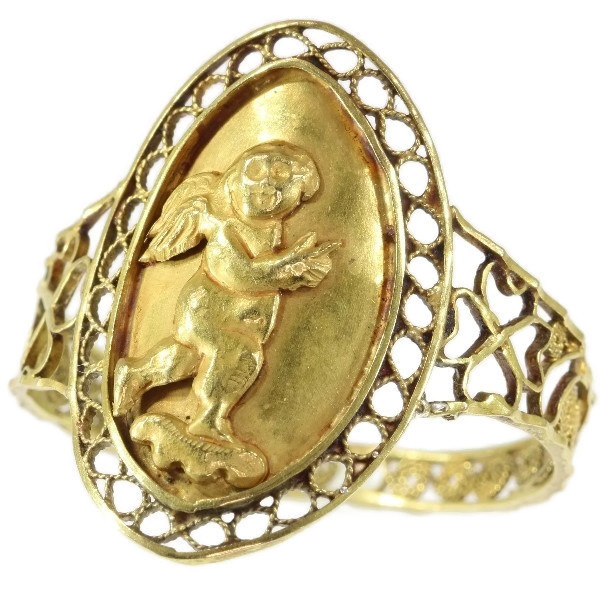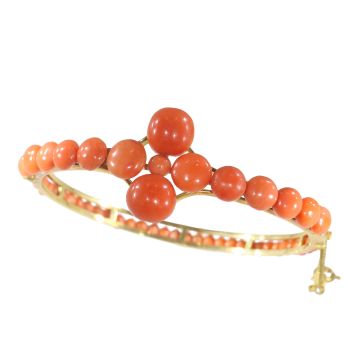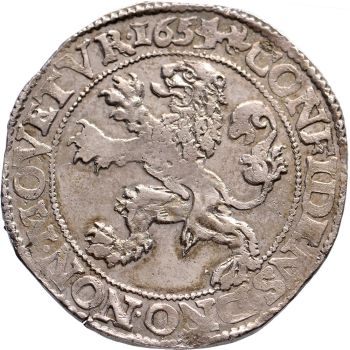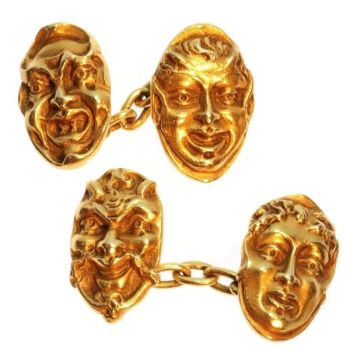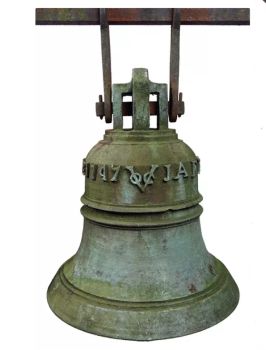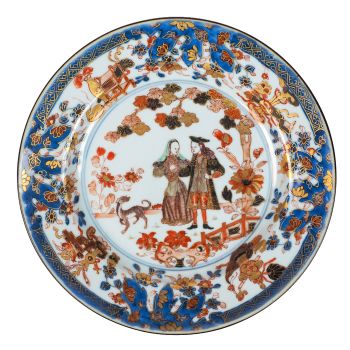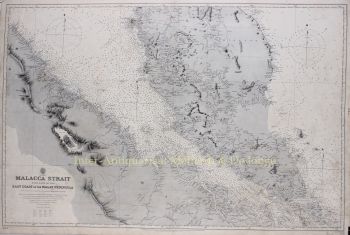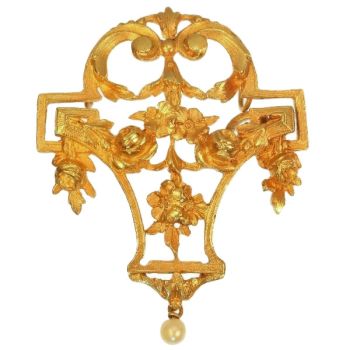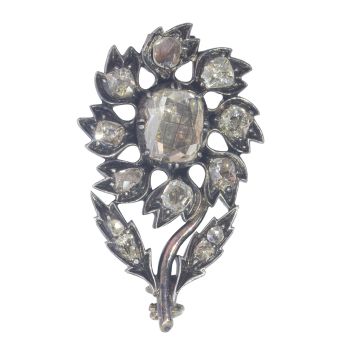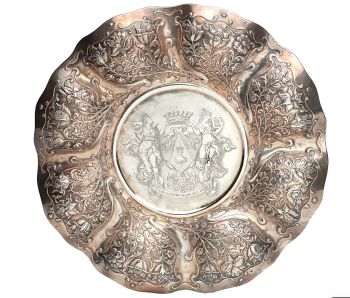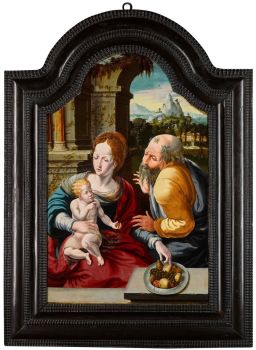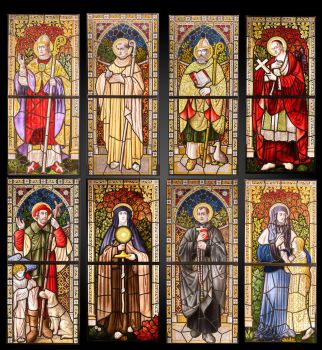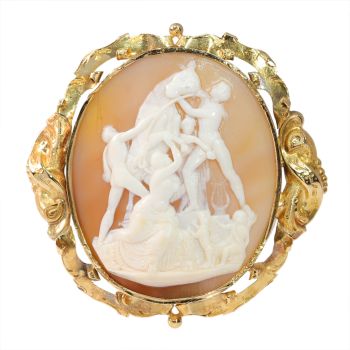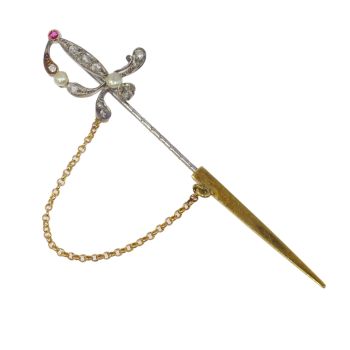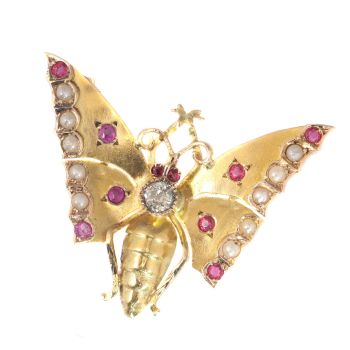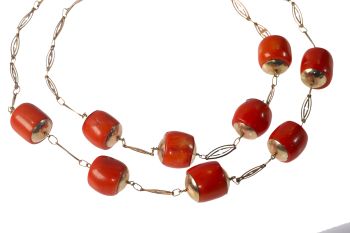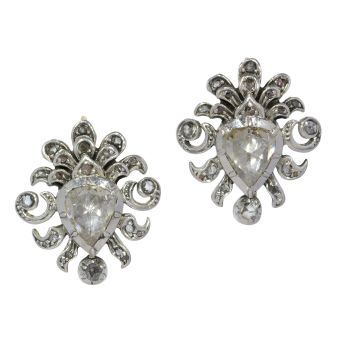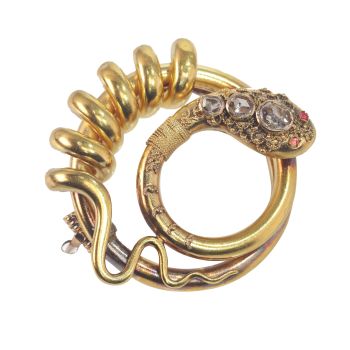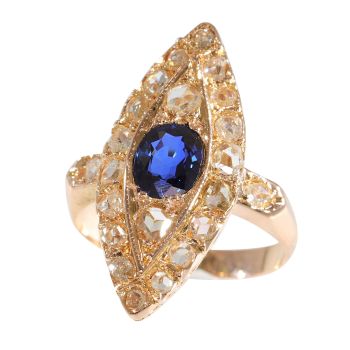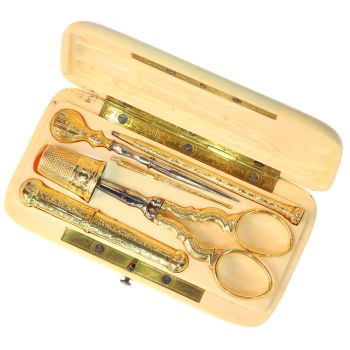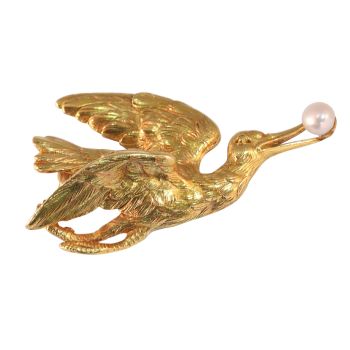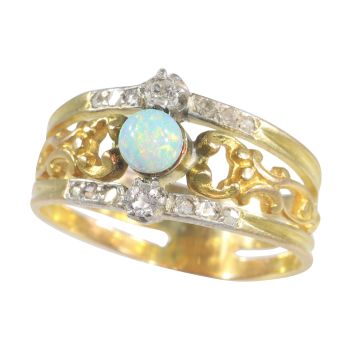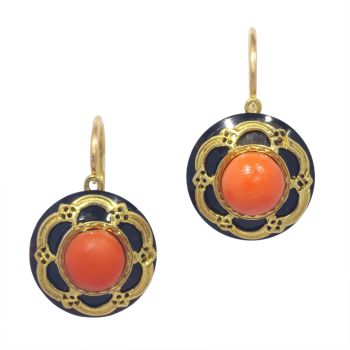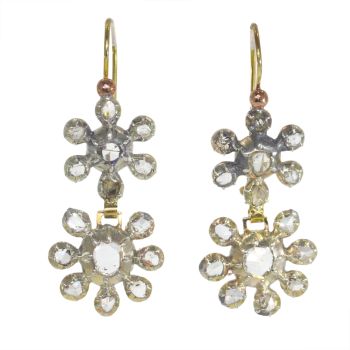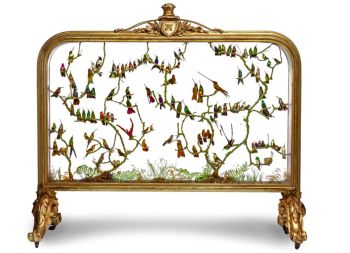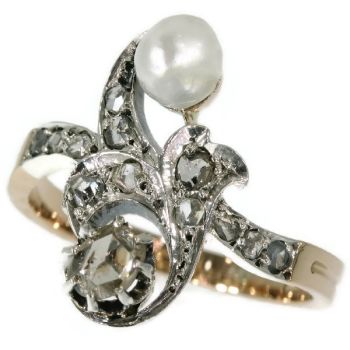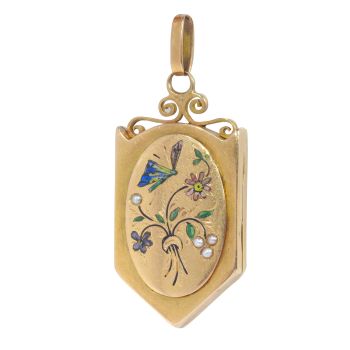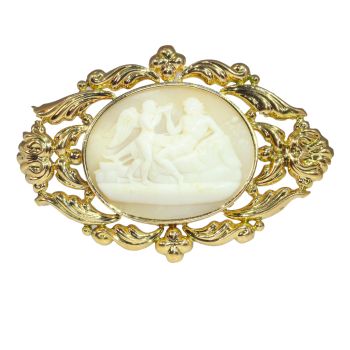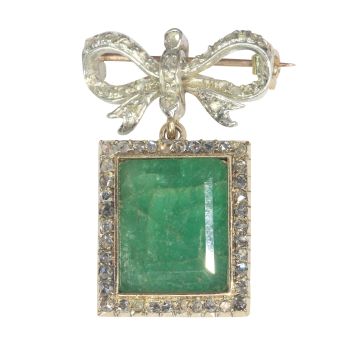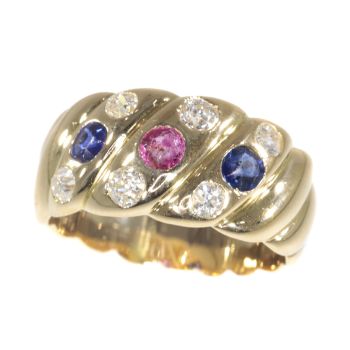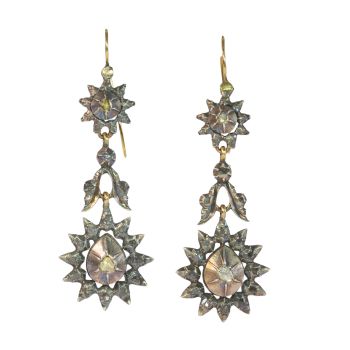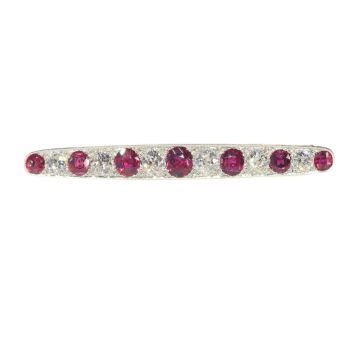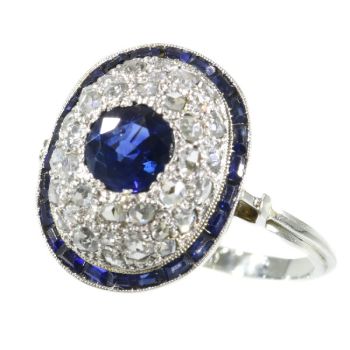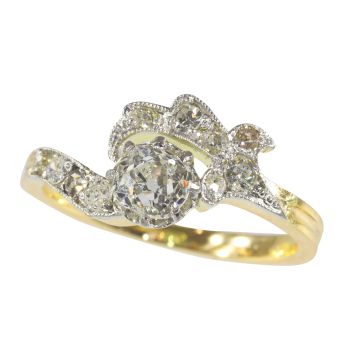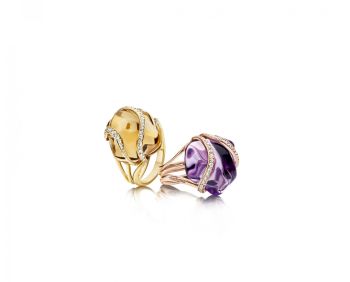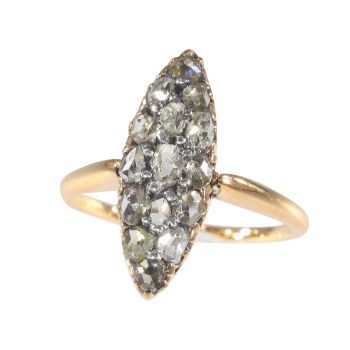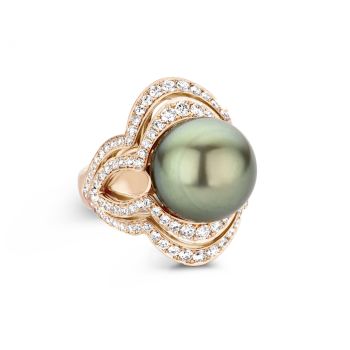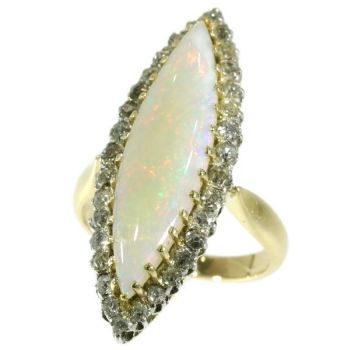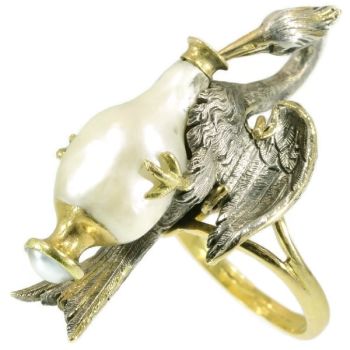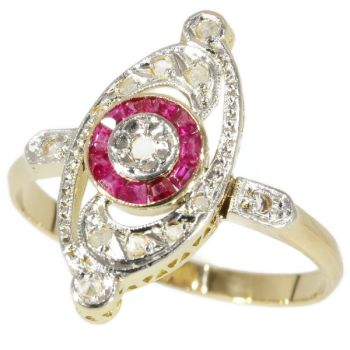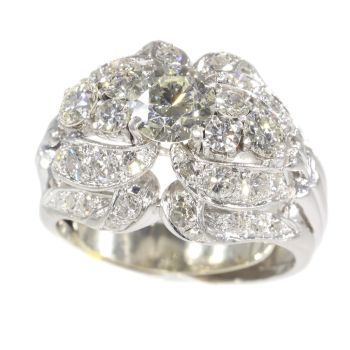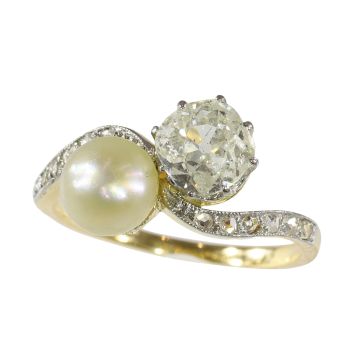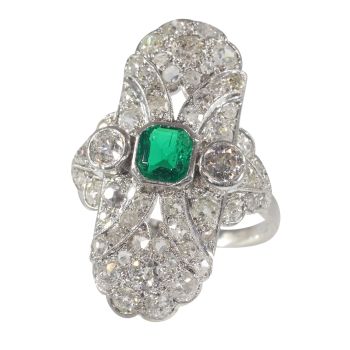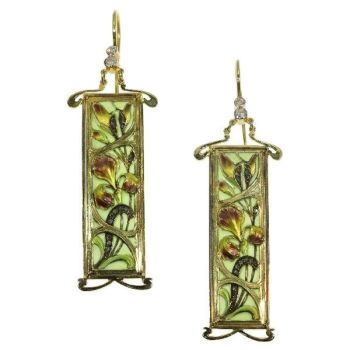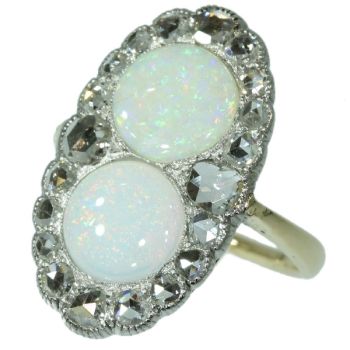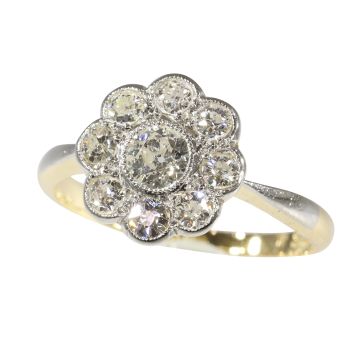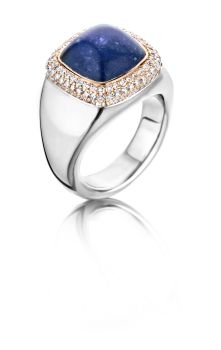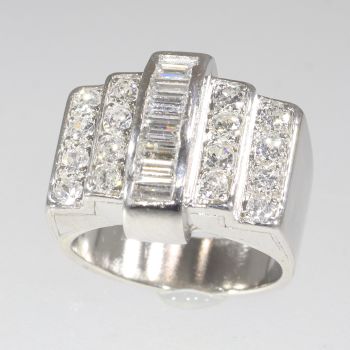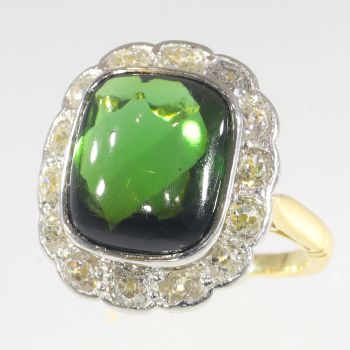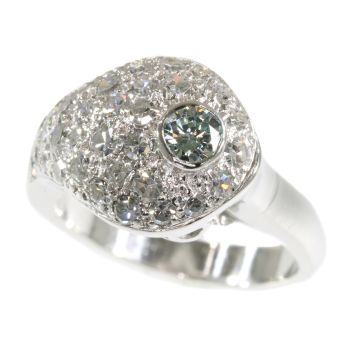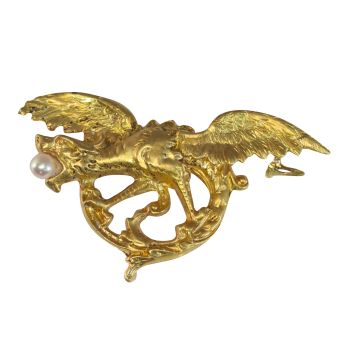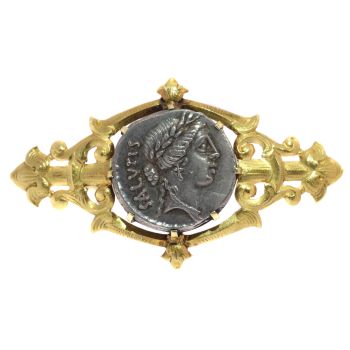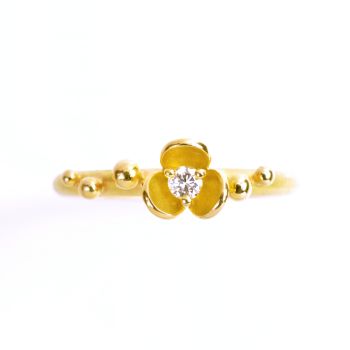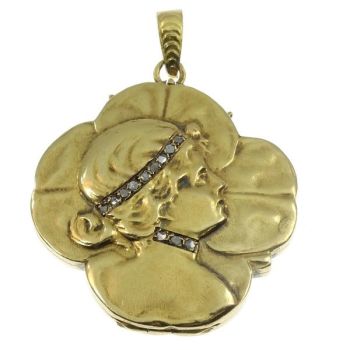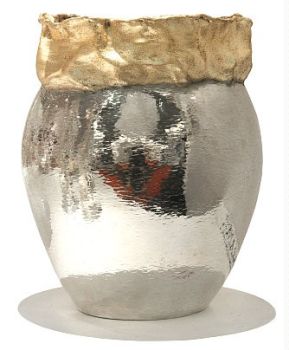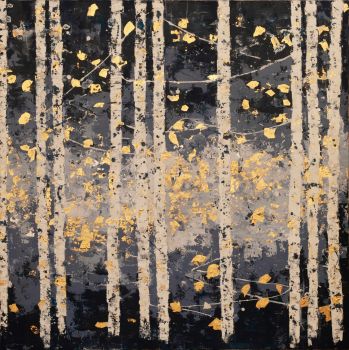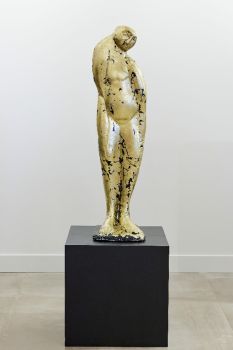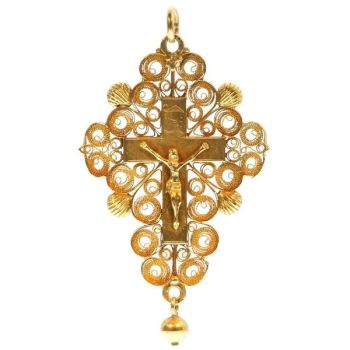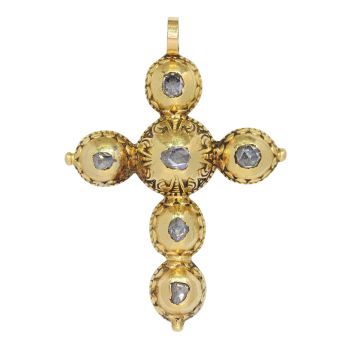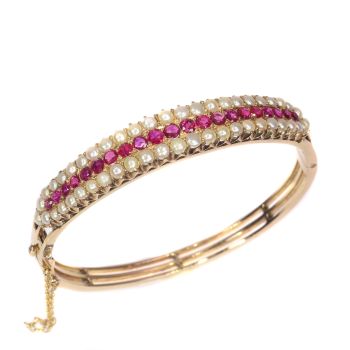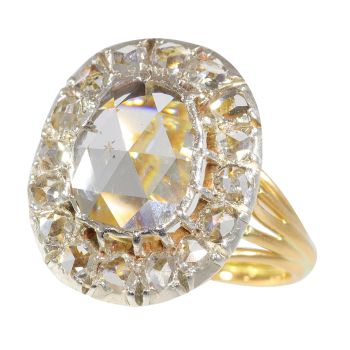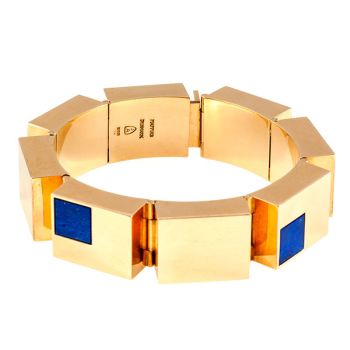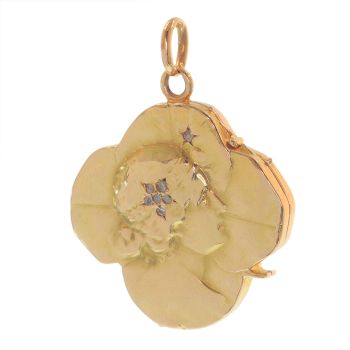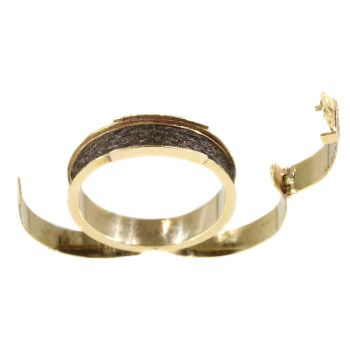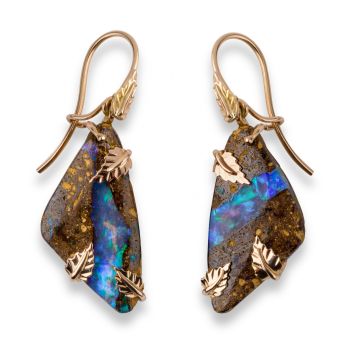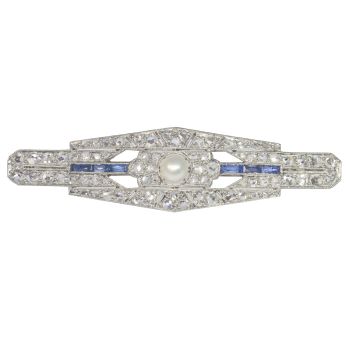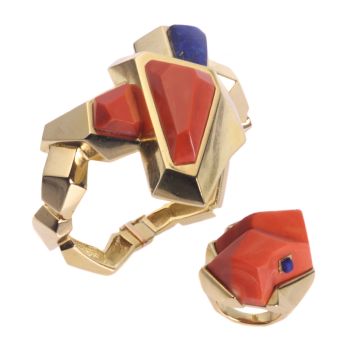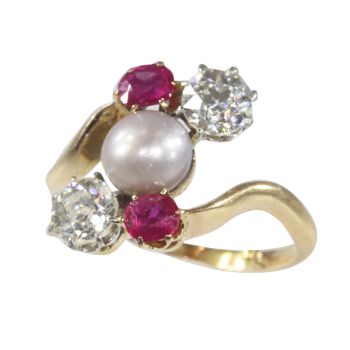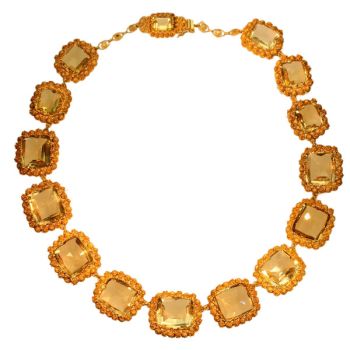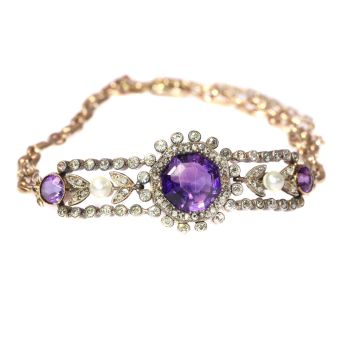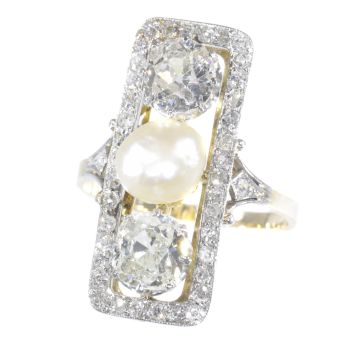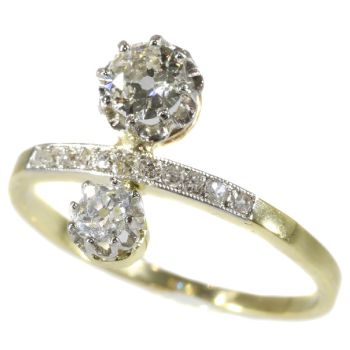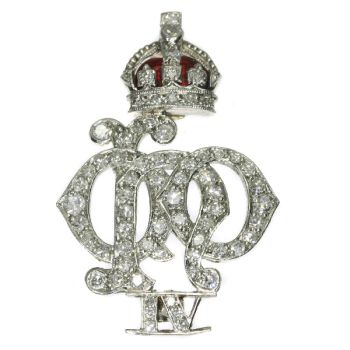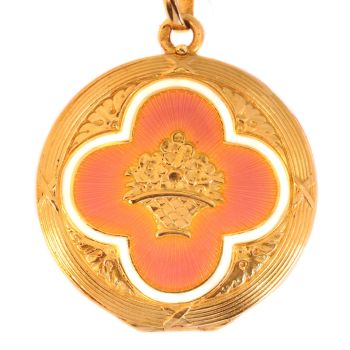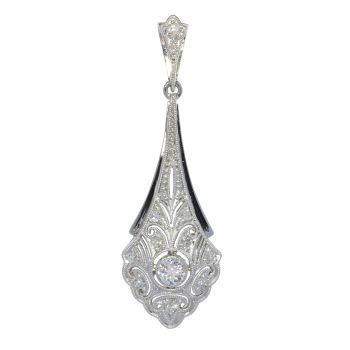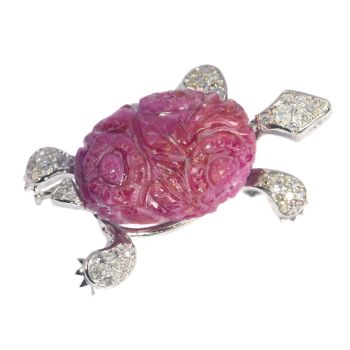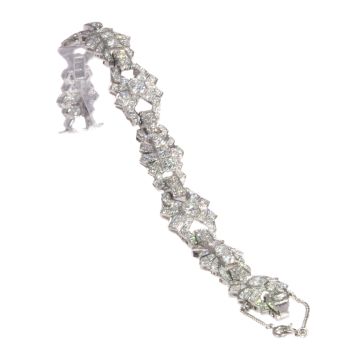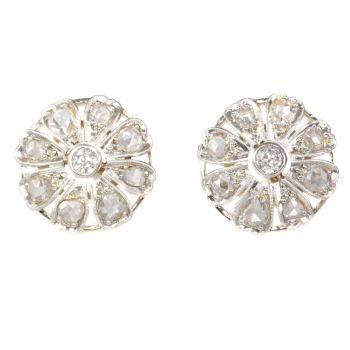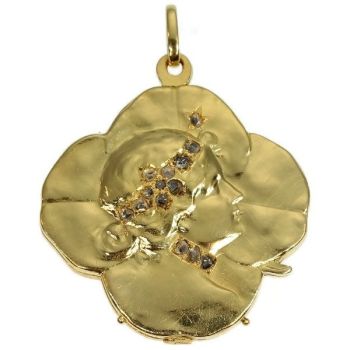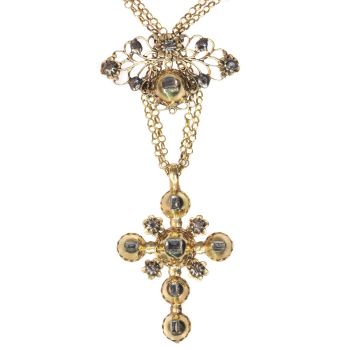Grande bague en or antique d'amour et de chance française avec un mignon petit Amor 1840
Artiste Inconnu
Or
€ 2.450
Adin Fine Antique Jewellery
- Sur l'oeuvre d'art
This adorable French yellow gold ring from around 1840 is a true testimony of how jewellery and declarations of love go hand in hand.
Cupido, the Roman god of love, is enshrined as a putti in an infinite halo of filigree lemniscates. On both sides of this marquise shaped top, four hearts build a universe where one plus one is one as they assemble into a four leaf clover.Between the shank's edges, filigree frills flutter as butterflies in a stomach. Clearly, this symbolic ring seales the marriage of love, luck and eternity.
Another important detail is that this piece was made to shout out loud this message of affection as the large ringsize implies it was used to wear on gloves for everyone to see. Nowadays, love doesn't always seem to be this simple, so ouradvise is: if they don't make them like they used to, you just buy antiques.
Antique jewelry object group: ring
Condition: very good condition
- (more info on our condition scale)
Country of origin:France
Style: Victorian - Victorian decorative arts refers to the style of decorative arts during the Victorian era. The Victorian era is known for its eclectic revival and interpretation of historic styles and the introduction of cross-cultural influences from themiddle east and Asia in furniture, fittings, and Interior decoration. Victorian design is widely viewed as having indulged in a regrettable excess of ornament. The Arts and Crafts movement, the aesthetic movement, Anglo-Japanese style, and Art Nouveaustyle have their beginnings in the late Victorian era.
- See also: Victorianor more info on styles
Style specifics: The Romantic Victorian Period - Experts divide the reign of Queen Victoria, also called The Victorian era (1837 - 1901) in to three periods of about twenty years each; The Romantic Victorian Period (1837 - 1860), The Grand Victorian Period (1860 -1880), and the Late or Aesthetic Victorian Period (1880 - 1901).
We consider this to be of the Romantic Victorian Period. This period covers the coronation of Victoria as Queen of Great Britain and Ireland, and her marriage to King Albert and their love, their devotion to their marriage and to their country are thesources of inspiration for this period. The jewels of this period are made of intricate carvings, special techniques where the enamel is subtly worked. These techniques allowed to give the jewel a certain opulence with less precious metal needed. Asprecious metals were really rare at that time. Highly favored (semi-) precious stones in this period are amethyst, coral, garnets, seed pearls and turquoises. The connotation is obviously sentimental, symbolic and romantic with reminiscent Gotic and/orRenaissance patterns and an abundant use of motifs like anchors, birds, branches, crosses, hearts and snakes.
Period: ca. 1840
- (events & facts of this era, poetry of this era, fashion of this era)
Source of inspiration: Luck, love and romance
Theme: Amor - Or Eros or Cupido if you like, is the God of love who launches his love arrows to make people fall in love.
Material: 18K yellow gold
- (more info on precious metals)
Technique: Filigree (formerly written filigrann or filigrane) is a delicate kind of jewel work made with twisted threads usually of gold and silver or stitching of the same curving motifs. It often suggests lace and French from 1660 to the late 19th century. Itshould not be confused with ajoure jewellery work; while both have many open areas, filigree involves threads being soldered together to form an object and ajoure involves holes being punched, drilled, or cut through an existing piece of metal. (from: Wikipedia)
Hallmarks: The French control mark for 18K gold representing an eagle's head that was in use in France from about 1838.
- (more info on hallmarks)
Dimensions: top of ring 2,56 cm (1,01 inch) x 1,67 cm (0,66 inch)
Weight: 3,00 gram (1,93 dwt)
Ring size Continental: 75 & 23¾ , Size US 15¾ , Size UK: above Z
Resizing: Resizing is possible but because of the age of the ring we prefer to leave it untouched. We could make an additional inner ring so the ring itself is not harmed, for this work we have to charge. We cannot guarantee to make it on every size; so pleaseask in advance. Return policy on this ring is not valid anymore once this work has been done.
- (more info on ring sizes)
Reference Nº: 18082-0223
Copyright photography: Adin, fine antique jewelry
- Sur l'artiste
Il peut arriver qu'un artiste ou un créateur soit inconnu.
Certaines œuvres ne doivent pas être déterminées par qui elles sont faites ou elles sont faites par (un groupe d') artisans. Les exemples sont des statues de l'Antiquité, des meubles, des miroirs ou des signatures qui ne sont pas claires ou lisibles, mais aussi certaines œuvres ne sont pas signées du tout.
Vous pouvez également trouver la description suivante :
•"Attribué à …." A leur avis probablement une oeuvre de l'artiste, au moins en partie
•« Atelier de …. ou « Atelier de » À leur avis, une œuvre exécutée dans l'atelier ou l'atelier de l'artiste, éventuellement sous sa direction
•« Cercle de… ». A leur avis une oeuvre de la période de l'artiste témoignant de son influence, étroitement associée à l'artiste mais pas forcément son élève
•« Style de … ». ou "Suiveur de ...." Selon eux, une œuvre exécutée dans le style de l'artiste mais pas nécessairement par un élève ; peut être contemporain ou presque contemporain
•« Manière de… ». A leur avis une oeuvre dans le style de l'artiste mais d'une date plus tardive
•"Après …." A leur avis une copie (quelle qu'en soit la date) d'une oeuvre de l'artiste
•« Signé… », « Daté… ». ou « Inscrit » À leur avis, l'œuvre a été signée/datée/inscrite par l'artiste. L'ajout d'un point d'interrogation indique un élément de doute
• "Avec signature ….", "Avec date ….", "Avec inscription …." ou "Porte signature/date/inscription" à leur avis la signature/date/inscription a été ajoutée par quelqu'un d'autre que l'artiste
Êtes-vous intéressé par l'achat de cette oeuvre?
Artwork details
Related artworks
Artiste Inconnu
The bell of the VOC fortress in Jaffna, Sri Lanka1747
Prix sur demandeZebregs & Röell - Fine Art - Antiques
 Sélectionné par
Sélectionné parDanny Bree
Artiste Inconnu
UN PLAT EN ARGENT LOBBED INDONÉSIEN INSOLITElate 17th
Prix sur demandeZebregs & Röell - Fine Art - Antiques
1 - 4 / 12- 1 - 4 / 24
- 1 - 4 / 24
- 1 - 4 / 24
- 1 - 4 / 12

